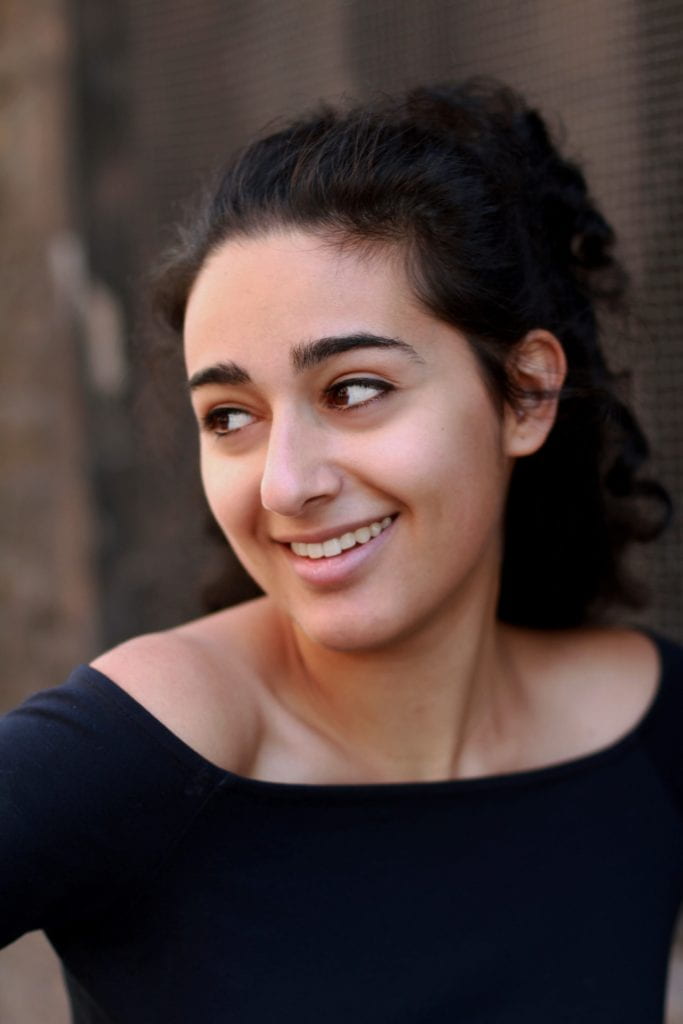Layla Madanat graduated with a BA in History in 2018. You can watch her documentary ‘Mosaic’ here.
Hi Layla, thanks for joining us today. So, what have you been up to since graduating?
It’s been a bit of a whirlwind!
I was very lucky to receive a scholarship to go straight onto study an MSc in Gender, Development and Globalisation at LSE in September 2018, which was an incredible interdisciplinary academic experience. I got to do some really amazing research, including writing a dissertation titled: “Negotiating Masculinities, Differences and Critiques Abroad: A postcolonial feminist analysis of young men’s experiences of international volunteering.”
Whilst I was studying I carried on setting up as an artist, directing productions across London.
Since finishing my MSc, I’ve had a crazy time continuing to freelance across arts fundraising, political lobbying, classical music and now in anti-sexual exploitation and social justice, whilst continuing to work as an artist myself!
Most recently, I was lucky enough to graduate as one of 12 young leaders on the year-long “Making Lemonade” programme run by Sour Lemons, working to dismantle power systems across arts and culture in the UK.
What was your favourite thing about studying at Bristol?
Studying at Bristol was absolutely informative in where my life has gone since graduating.
Asides from being part of such a supportive department and being really active in society life, the standout thing in my experience was the fact that being in a city university meant I had real, meaningful interaction with the Bristol community outside of the University bubble.
In my very first year at Bristol University, I was part of a group that established ‘Process Theatre’. Four years later, we continue to work with the incredible Bristol charity One25, increasing public engagement and awareness of the work they do by presenting some of the real stories of women in Bristol who turn to street sex work to survive. I then volunteered with the charity, cooking and in drop-in.
Working so closely with a local charity, as well as nannying and working in children’s parties made me feel like a real part of the city, and has strengthened my connection to the city.
How has your degree influenced what you have done since?
It’s always interesting to see what people who study History go on to do, as I think it’s one of the few degrees that can take you wherever you want to go.
Having the chance to study such a wide range of topics at Bristol helped me find the bits of History that interest me the most, and led me to choose a Master’s degree focused on gender and race studies. Bristol was the first time I had the chance to curate my own curriculum, and made me able to focus on the histories behind the inequalities I was driven to change in society.
But it’s also affected the work I lean towards as an artist, as I tend to work with under-represented writers and creators, looking to radically decolonise the arts and culture sector. It’s also shaped how I practice, with the analytical and research skills I learnt helping me create my own unique approach to work.
What advice would you give students doing History now?
Choose a unit completely outside your comfort zone.
University is one of the only times you can do things like that without the pressure of contract and commitment. At worst, you learn about something new but decide that it’s not for you after a term. At best, you can find a whole new field that interests you. That’s what I did, and it’s transformed the way I approach research. I don’t think I can go back to not working in an interdisciplinary way again!
What’s the best thing you’ve read lately?
This is hard. I think I’ll go with The Luminaries by Eleanor Catton. In 2013, it became the longest book and Catton the youngest author to have ever won the Booker Prize. It’s an adventure mystery set in the goldfields in New Zealand in 1866, that leaves you guessing till the very end when it culminates in one of the most satisfying endings I’ve ever read.
If you want something a bit more beautifully frustrating and abstract, go for The Unconsoled by Kazuo Ishiguro. Written entirely in a dreamlike state with essentially no logic at all, it’s hilarious how wild the journey it takes you on is.
What is your must-do Bristol activity?
Abbots Pool! In winter, the woods make for an amazing walk, but in summer you can lounge in the sun across the woods and by the pool. It’s idyllic. (I’d say go swimming, but I don’t think that’s allowed anymore…)
Honestly, just walk without a map and without a purpose. Some of my favourite Bristol spots were found just wondering down through Stokes Croft and beyond, and seeing what I came across.
What’s next for you?
My current approach to my work is “What can I try next?” I hope to continue along my non-linear career path across arts, culture, social justice and academia. I wish I’d known that a few years ago, when it seemed everyone around me was heading into a grad scheme in the city. I’m so glad it works for some people, but if it doesn’t sit right with you, it doesn’t have to be the only future you imagine for yourself.
I have a few artistic projects like my documentary “mosaic” that I’m going to be developing in 2021, going to take an Arabic course in either Jordan or Lebanon, and, at some point, take the leap and apply for a PhD. Just keep trying things and seeing where life takes me.
As long as you know the why behind your journey, the how and what of it becomes completely flexible and, ultimately, more exciting.

